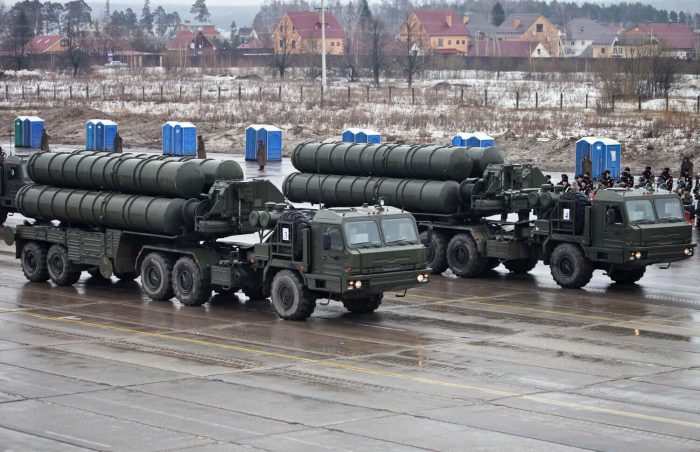As India is entangled in a border row with China, two of its closest allies, the US and Russia, have left New Delhi in a Catch-22 situation.
Iran Launches Air-To-Air Azarakhsh Missile In UAV Wargame Amid Tensions With The US
The outgoing US ambassador revealed the “close coordination” between India and the US as India faced “aggressive Chinese activity on its border.”
New Delhi has withheld the stand that the issue is resolved bilaterally. On the other hand, Russia has accused the “West” led by the US of using India as an “object” in its “anti-China games”.
“Our close coordination has been important as India confronts, perhaps on a sustained basis, aggressive Chinese activity on its border,” US ambassador to India Kenneth Juster said in his farewell address.
In the address, Juster lauded the close ties between the two countries saying that “no bilateral relationship in the world is as broad, complex and rich in substance as that of the United States and India”.
Thank you to @ORFOnline for hosting my Farewell Address yesterday. I very much enjoyed spending time with @SunjoyJ, @samirsaran, @IBagchiTOI, and all of the guests who attended in the room and virtually. You can find a copy of my remarks here: https://t.co/3BoeVygfaK
— U.S. Ambassador Eric Garcetti (@USAmbIndia) January 6, 2021
Juster didn’t shy away from acknowledging the “frictions and frustrations on the trade and investment front” between the two countries.
He also indirectly took a dig at India’s ‘Make in India’ initiative saying that the “current view in India is that the best way to meet these various objectives is through a policy of “Self-Reliance,” emphasizing “Make in India,” but “it remains to be seen whether all of these policies are compatible and mutually reinforcing, or whether they will lead to higher tariff and non-tariff barriers to trade.”
He added that higher tariffs would result in limiting India’s capacity to integrate into global value chains and raise prices for Indian consumers.
“Despite persistent efforts, we were unable to conclude even a small trade package. Moreover, there are growing restrictions in India on market access for certain US goods and services, increasing tariffs, new limitations on the free flow of data, and a less-than-predictable regulatory environment for investors.”
This is not the first time that a US official has talked of the frictions between the two nations. The Congressional Research Service report (CRS), public policy research institute of the United States Congress, stated that under the Trump administration, bilateral tensions increased over each side’s tariff policies.
It added that India has relatively high average tariff rates, especially in agriculture. “It can raise its applied rates to bound rates without violating its commitments under the WTO, causing uncertainty for US exporters.”
Moreover, the report also said that the India defense deal to procure the Russian S-400 missile system may trigger US sanctions on India under the Countering America’s Adversaries Through Sanctions Act (CAATSA). Washington has already imposed sanctions on Turkey for the purchase of S-400.
Juster said that CAATSA sanctions were “never designed to harm friends and allies,” when asked about the possibility of sanctions on India. However, he warned that the Indian government will have to make choices.
According to a PTI report, Juster said: “As systems get more technologically advanced, country A that does not get along with country B will be less willing to sell technology that could potentially be compromised to country B,” without making specific references.
Juster also emphasized during his farewell address that “no other country does as much to contribute to the security of Indians and India” than the US. “Our close coordination has been important as India confronts, perhaps on a sustained basis, aggressive Chinese activity on its border,” he added.
While America has reiterated its annoyance with the growing closeness between India and Russia, Moscow hasn’t kept quiet either. The Russian foreign minister had accused “the West” led by the US of using India as an “object” in its “anti-China games”.

Speaking at the general meeting of the state-run think tank Russian International Affairs Council on Tuesday, Russian Foreign Minister Sergey Lavrov displayed his contempt for the Quadrilateral or the Quad – an informal strategic forum between the United States, Japan, Australia, and India.
“India is currently an object of the Western countries’ persistent, aggressive and devious policy as they are trying to engage it in anti-China games by promoting Indo-Pacific strategies, the so-called ‘Quad’, while at the same time the West is attempting to undermine our close partnership and privileged relations with India,” Russian Foreign Minister Sergey Lavrov had said.
Follow EurAsian Times on Google News